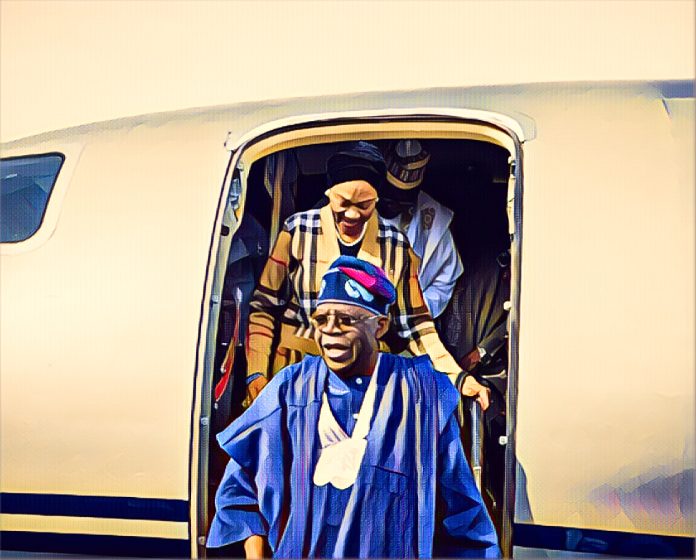KEY POINTS
-
President Tinubu has returned to Nigeria after a working visit to France focused on strategic governance planning.
-
His absence during a period of rising insecurity drew heavy criticism from opposition leaders, who demanded more hands-on leadership.
-
The Presidency insists Tinubu remained engaged throughout the trip and is now set to intensify reform efforts ahead of his second anniversary in office.
President Bola Ahmed Tinubu has returned to Nigeria following a brief working visit to France, which the Presidency described as part of his strategic planning ahead of his administration’s second anniversary.
The visit, which concluded on Monday, April 21, 2025, was aimed at evaluating key economic reforms and governance strategies.
While in France, President Tinubu reportedly held closed-door sessions with key advisors and economic experts, focusing on the implementation of Nigeria’s ongoing structural reforms.
The Presidency emphasized that despite being abroad, the President remained in “constant communication with top officials and security chiefs”, ensuring governance was not stalled during his absence.
“President Tinubu utilized the time to appraise the performance of his administration, particularly in the areas of fiscal reforms, foreign investment inflows, and internal security,” said an official from the Presidency who requested anonymity. “He remained active, issuing instructions and staying updated on unfolding events at home.”
Tinubu: Opposition figures slam timing of visit
Despite assurances from the Presidency, Tinubu’s absence during a period of rising insecurity across parts of the country, particularly in Benue and Plateau States, sparked a flurry of criticism from opposition leaders.
Former Vice President Atiku Abubakar and Labour Party leader Peter Obi were among the most vocal, calling for the President to cut his trip short and return home to personally address the situation. Obi, in a social media post, accused the President of “retreating while the country bleeds,” and questioned his leadership priorities during such a critical moment.
Atiku also expressed frustration, describing Tinubu’s prolonged foreign stays as “dereliction of duty,” particularly when citizens are grappling with violence, kidnappings, and economic hardship.
In response to mounting public pressure, the Presidency clarified that Tinubu’s absence was well within the bounds of responsible leadership. According to presidential spokespersons, Tinubu was in “daily contact with ministers and military commanders,” directing the coordination of counterterrorism efforts and overseeing economic policies remotely.
As the President returns, analysts suggest his next moves will be closely watched, especially in areas where Nigerians expect tangible improvements—such as national security, inflation control, and fuel pricing.
AAN TV reports that his return also coincides with key developments, including the recent reduction in petrol prices by the Nigerian National Petroleum Company (NNPC), a move linked to the operational boost from the Dangote refinery. Analysts believe this presents an opportunity for the administration to reinforce its economic recovery narrative.
Political analyst Dr. Bukola Ayinla noted that “Tinubu’s re-entry into the political landscape must now be matched with action. Citizens are no longer swayed by optics; they want results.”



